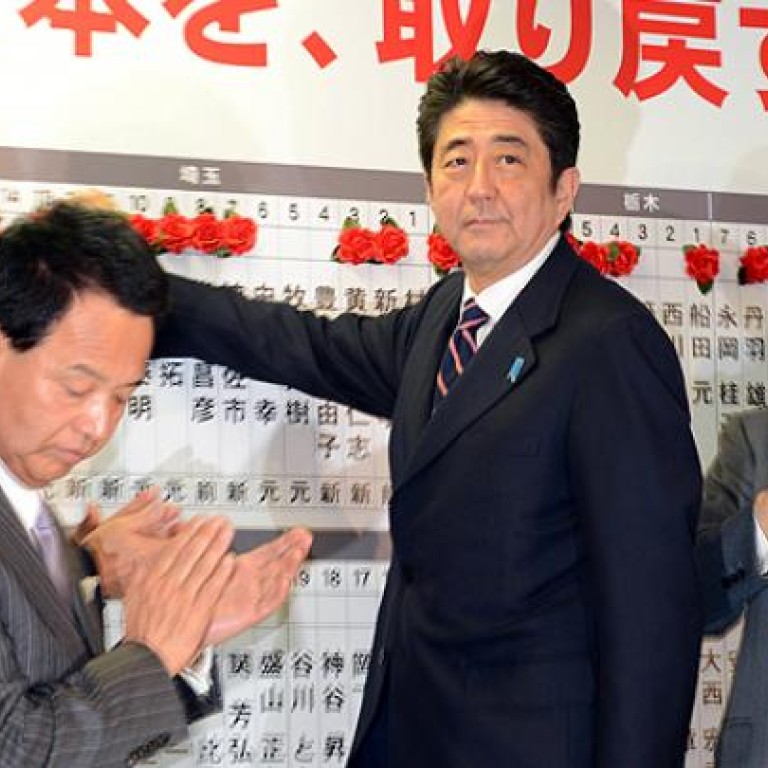
China 'highly concerned' over Japan's direction under Abe
Beijing said on Monday it was “highly concerned” over Japan’s future direction under the Shinzo Abe-led Liberal Democratic Party, which won the country’s parliamentary elections.
China said on Monday it was “highly concerned” over Japan’s future direction under the Shinzo Abe-led Liberal Democratic Party, which won the country’s parliamentary elections.
“We are highly concerned about which direction Japan will take,” Foreign Ministry spokeswoman Hua Chunying told reporters at a regular briefing after the LDP ousted the Democratic Party of Japan from power in Sunday’s vote.
Hua, who reiterated China’s stance that East China Sea islands disputed between the countries are Chinese territory, also said that China is open to improved ties with Japan
“China is ready to work with Japan for further development of stable relations,” she said, adding that “the current task is now to properly handle the current issue” of the territorial dispute.
Earlier on Monday, Abe, set to become Japan’s new prime minister, said there can be no compromise on the sovereignty of the islands, calling them “Japan’s inherent territory”.
The election victory of Japan’s main conservative party, led by a minister known for his hardline China views, drew a muted response from Beijing but withering criticism from Chinese bloggers.
After weeks of sparring over contested East China Sea islands and warning about resurgent militarism in Japan, the Chinese Foreign Ministry largely avoided mentioning specific disputes and instead said the onus is on Tokyo to improve relations.
“China attaches importance to the direction of Japan’s policy toward China, and hopes Japan will deeply reflect on and properly handle the current difficulty in the China-Japan relations,” Foreign Ministry spokeswoman Hua Chunying said at a regular press briefing.
In contrast to Beijing’s low-key approach, the Chinese blogosphere crackled with barbs for the LDP win and especially for Abe.
Some said Abe’s win would push Japan further to the right and bring about the country’s ruin. Others called for a boycott of Chinese goods after Abe was reported in postelection comments to have called for a tougher line over the disputed islands, known as Senkaku in Japan and the Diaoyu in China.
Asked about Abe’s comments, Hua, the spokeswoman, reiterated Beijing’s claim that the islands are part of China. She urged Abe, without naming him, to focus on the overall benefits that good relations bring to both countries.
“We hope the Japanese politicians can look at the big picture of the development of the China-Japan relations and work with China to drive the sound and stable growth of relations forward,” Hua said.
